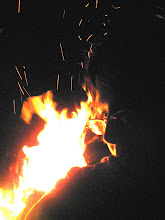
In her book The Pornography of Meat, Carol J. Adams reveals ways in which advertising and pornography have made inequality tasty, sexy and fun. We don’t see this inequality as anything wrong, she says, because we benefit from it. The dominant paradigm of inequality is at the root of violence against both women and animals.
On November 12, Adams presented her slide show on “The Sexual Politics of Meat.” Afterwards, she met with students for lunch and conversation .
“We live in a world of dominance,” Adams said. “In the western world, we are made to fit into a dualistic structure in which the dominant side is over and against the non-dominant ‘other’…. Women live in sexual objectification the way fish live in water. The water of sexual objectification is all around us.”
The environment of sexual objectification is created by “the male gaze,” which views women not as specific and unique individuals, but as consumable things that are “to be looked at and used.” This is synonymous, Adams said, with the way that the male gaze views animals.
“What is on the plate in front of us is not devoid of specificity; it is the dead flesh of what was once a living, feeling being,” Adams said. “The crucial point here is that we make someone who is a unique being into something that is the appropriate referent of a mass term. Mass terms signal the thingification of beings.”
According to Adams, the role of feminism is to intervene against inequality in order to create equality. She has certainly exerted a great deal of effort towards this goal in her own life. In the 1970s, she and her partner started to run a hotline for battered women.
A difficulty arose when it became necessary to find safe places for the women. When community support failed to rise to meet this opportunity to help, she decided that her home could serve as headquarters until volunteer participation increased.
She also intervenes against the inequality of species-ism through her choice to live a vegan life.
In the absence of the currently all-pervasive power dynamic that is created by advertisements and pornography, society would look much different than it does now. “For one thing, women would no longer die at the hands of their lovers,” Adams said, “and animals would not be slaughtered for food.”
It seems undeniable that that would certainly be an important indication of a more peaceful, less violent, and more just society.
Creating such a society would not be an easy task, because it will require that people collectively open themselves to the pain that has been caused and continues to exist. However, in the long run, the healing will be greater than the difficulty.
“Compassion is a renewable resource,” Adams said. “It is true that when we allow ourselves to be aware of the pain of others, there will be disappointment, anger and grief; but these will not kill us. We are better off feeling the compassion. Many people don’t recognize that it ultimately takes more work to protect yourself from the vulnerability and pain of caring than to just let yourself care.”
Although there is certainly merit in dedicating oneself to equal rights causes and/or a vegetarian lifestyle, one does not need to make such a large commitment in order to bring about positive change to the current conditions of inequality. “I’d like to see male college students call each other out when they objectify women, for them to become more deeply aware that the objectification exists and to recognize it for what it is,” Adams said, “and to begin to accept accountability,”
“I’d also like to see a world in which women feel safe,” Adams continued. “How do we think that there can be equality if there is not safety?”





No comments:
Post a Comment